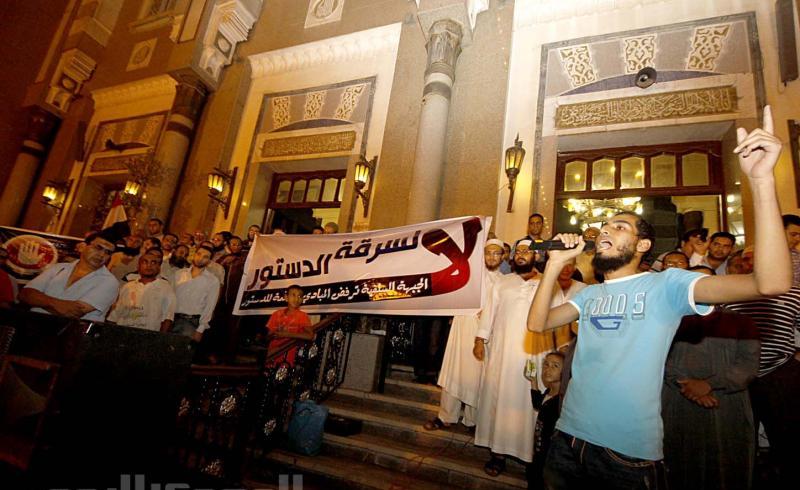
As the threat of a large anti-SCAF demonstration scheduled for Friday November 18 looms, reports are trickling out of a new set of concessions that Deputy Prime Minister Ali al-Selmi made after meetings with political parties and prospective presidential candidates over the last few days. It is not entirely clear what al-Selmi conceded, or whether the SCAF has approved the concessions, but here is how it looks so far.
Original provisions of the supraconstitutional principles to which political parties particularly objected were:
- Calling the military the “protector of constitutional legitimacy” (which implies a right to intervene in political processes)
- Giving the SCAF exclusive oversight over its own budget and perhaps military appointments (the language says that “The Supreme Council of the Armed Forces – without any other – is in charge of handling all the affairs of the armed forces and discussing its budget.”)
- Giving it a veto over legislation related to the military
- Laying out in great detail who should compose the 100-member constituent assembly (thereby depriving the parliament to be elected of its main task)
According to press reports, al-Selmi agreed last week to make a couple of revisions:
- Deleting the “without any other” language regarding exclusive SCAF oversight of the budget and other affairs
- Adding language suggesting that a new “National Defense Council” chaired by the president would revise and approve the military budget
But those revisions were insufficient to get the Muslim Brotherhood, other Islamists, and some youth groups to back off from their threat of a million man march on November 18. Now the latest concessions, according to Wahid Abdel Meguid (a former Wafdist currently participating in the Brotherhood-led Democratic Alliance) reported in Ahram Online) include:
- Oversight of the military budget by a secret session of parliament or national security committee in parliament
- Election of the 100 members of the constituent assembly
This is probably not enough to satisfy Salafists, who also objected to other aspects of the principles, and certainly has not appeased the formerly militant group al-Gama’a al-Islamiyaa, which boycotted this week’s meeting with al-Selmi and renewed its call for a mass demonstration on November 18. Although the Brotherhood has not yet announced its official stance on the protest, a Brotherhood source told al-Jazeera that the group views al-Selmi’s latest concessions as insufficient and has decided to participate in Friday’s rally.
Michele Dunne is Director of the Council’s Rafik Hariri Center for the Middle East.
Image: protest%20against%20supra-constitutional%20principles.jpg
